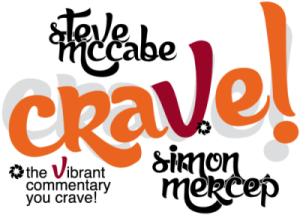
Wonder
Wonder is supposed to be an inspirational, uplifting and empowering film about being kind. The kindest this that anyone could do for this film would be to shelve it, and allow it never to see the light of day. Sadly, it will be released, it will likely get moderately good reviews from people who are in too good a mood to give it the panning it thoroughly warrants, and its stars will trouser much more of a paycheque than they have any reason to deserve for a film like this.
Jacob Tremblay, last seen doing much better work in Room, is Auggie, a young boy who suffers from a non-specific facial condition — the film hand-waves it as “something genetic” — that has caused him to stay locked away at home, being homeschooled by his mother Isabel (Julia Roberts). But the time has come for him to go to middle school, where he is at first isolated and then finally befriended by Summer (Millie Davis) and Jack Will (Noah Jupe, who is clearly capable of better), who help us all to learn a very special lesson, that beauty is skin deep.
Of course they do. This is the kind of film where everyone learns something, about life and about themselves, and the messages and morals are beaten so hard over audiences’ heads that there’s no room left for subtlety, or actual emotional weight, or anything that might redeem this film and save it from being an emetic mess.
The characters, such as they are, are at best cyphers. Auggie has, as has been mentioned, some form of facial deformity, and while in truth the makeup Tremblay wears makes him look slightly unusual, the characters in the film, from Auggie himself to his classmates to his father, played by a Wilson brother (it hardly matters which), talk about him as though his father were not a hipster so overweeningly cool that he wears worn-out tennis shoes with a suit and tie, and instead John Merrick himself. His sister Via (a perfectly capable Izbela Vidovic) finds herself on the periphery of the family, trying to find a place for herself in a home that is utterly focused on Auggie, who is, despite Tremblay’s evident acting ability, a whiney little shit.
Director Stephen Chbosky tries very hard to bring something resembling interest and structure to Wonder, but his approach is so scattershot as to be pointless. He tries to structure the film around four of the main characters, introducing them using chapter titles, but each vignette drifts, very quickly, back to the whiney little shit around which the film revolves. He gives Auggie, the WLS himself, a couple of voice-overs toward the beginning of the film, but the words he puts in Auggie’s mouth are so far beyond the maturity of a thirteen-year-old as to be preposterous. A metaphor about shoes is essayed, briefly, and then abandoned. A motif of Auggie seeing Star Wars characters as invisible friends is sketched out, and then, again, jettisoned.
The only thing that manages to be a constant in all of this is the bright, primary-colour happiness of everybody and everything and everywhere in the film. Auggie’s teacher, Mr. Browne, tells his class on their first day that he used to work on Wall Street, but gave it all up to follow his dream and teach in the kind of exhibition-quality perfect classroom that only exists in the imaginations of people who could never be teachers. Auggie’s family, when they share their uplifting, life-affirming time together, talk in broad strokes and fall about at the slightest hint of humour as though Shaw or Wilde themselves were in the room.
It’s rubbish. It’s not as motivational or inspirational as it desperately wants to be, and instead just manages to be dull. Despite the best efforts of Mandy Patinkin, who either lost a bet or owed a very big favour to a friend, but who really should know a lot better, and who manages to bring more genuine warmth into his three scenes than can be found in the entire of the rest of the film, Wonder is mawkish, sentimental, and, frankly, bollocks.
